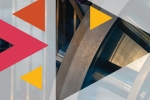Global Economic Crime and Fraud Survey 2020
03 Mar 2020
The value of Economic Crime increases in SA while the rate of reported Economic Crime decreases for the first time in ten years - PwC report
JOHANNESBURG, SOUTH AFRICA: The percentage of South African organisations who have experienced economic crime has significantly declined in 2020 returning to levels last seen in 2011. The rate of reported economic crime has dropped 17 percentage points from 77% in 2018 to 60% this year. These are some of the key findings from PwC’s biennial Global Economic Crime and Fraud Survey – 7th South African edition, issued today.
Despite this decline, South Africa’s rate of economic crime continues to remain significantly higher than the global average of 47%. Added to this is the stark reality that the incidence of higher value serious economic crime, being crimes with a value greater than US$100 million, is now 4%.
Trevor White, PwC Forensic Partner and Global Economic Crime and Fraud Survey Leader for South Africa, says:
“Given the spate of recent scandals in South Africa, both in the public and private sectors, it is no surprise that organisations consider bribery and corruption to be the most serious economic crime to affect businesses. This, combined with increased involvement of senior management in perpetrating such acts, has resulted in a sharp increase in the value of losses incurred as a result.”
The level of involvement of senior management as the main perpetrator has escalated from 20% in 2018 to 34% in 2020.
With respondents in India and China reporting the highest occurrence of economic crime, South Africa has slipped to third in the top ten ranking of countries with the highest reported economic crime in the world. Before now, India has never featured in the top ten.
The Global Economic Crime and Fraud Survey examined over 5000 responses from 99 countries. It reported on the overall insights from companies who have experienced on average six incidents over the last two years. The report provides insights into the threat, cost of fraud and what companies need to do to develop stronger proactive responses.
Types of economic crime
This year’s survey marks a new era in which customer fraud has come to the fore as the most prominent economic crime (South Africa: 47%; Global: 35%), followed by bribery and corruption (South Africa: 42%; Global: 30%) and accounting/financial statement fraud (South Africa: 34%; Global: 28%).
The prominence of accounting/financial statement-related fraud, which has left many casualties in the past few years, has been one of the major factors prompting companies to take a hard look at themselves and to reflect on what is being done to counter the scourge of economic crime.
The actors that perpetrate economic crime in South Africa
Fraud hits companies from all angles – the perpetrator could be internal, external or in many instances there is collusion.
South African companies have seen a notable upsurge (from 15% in 2016 to 34% in 2020) in instances of senior management perpetrating fraud. Economic crimes perpetrated by senior management are often among the most ominous because of the ability of top executives to override (or conspire to override) internal controls.
Trevor Hills, Forensic Services Leader for PwC Southern Africa, adds:
“With more than a third of South African respondents falling prey to this phenomenon, more focus on governance is required in organisations. The days of the passive non-executive board member have passed and there is a need for this independent oversight function to become more involved and ask the difficult questions, and thereafter demand and interrogate the answers provided.”
In contrast to the trend globally, South African respondents cited organised crime as the highest rated source of external perpetrators (27%) with fraud committed by customers coming in a close second (at 25%) as the most disruptive fraud. One in five economic crimes perpetrated by external parties were committed by hackers, highlighting the fact that organisations cannot afford to drop their guard in any area – especially if they are adopting higher levels of technology.
Business behaving badly
This year, for the first time, survey respondents were asked if their organisations had been accused of perpetrating a fraud. Of those who reported experiencing economic crime, nearly one in five South African respondents reported that their organisations had also been accused of committing a fraud, corruption, or other economic crime.
The cost of economic crime
Approximately 7% of South African respondents who experienced a fraud in the last 24 months reported losing more than $50 million across all incidents, with 4% reporting direct losses in excess of $100 million for all incidents of fraud, corruption or economic crime experienced in the last two years. Incidences of losses in excess of $100 million with respect to the most disruptive economic crime experienced by South African respondents doubled since the 2018 survey, from 1% to 2%.
Taking action and being prepared
How an organisation responds to fraud when it occurs can determine whether it perishes, survives or thrives as a company. Sixty percent of South African respondents that experienced and addressed a disruptive fraud incident believe that they ended up in a better place after the investigation. It is notable that 42% of respondents didn’t investigate at all and more than half of the incidents were not disclosed to the board. Shockingly 72% of incidents were not disclosed to the auditors and 66% were not disclosed to regulators or law enforcement.
Organisations and the structures that govern them are expected to do more, not only by regulators, but also by the broader investment and stakeholder communities.
While almost 60% of South African respondents say they have policies and procedures in place that include training and monitoring, only around half of organisations are dedicating resources to risk assessment, governance and third-party management.
While technology is just one part of the answer in fighting fraud, the report finds that 60% of organisations globally are beginning to employ advanced technologies such as artificial intelligence and machine learning to combat fraud, corruption or other economic crime. Thirty percent of South African participants (Global: 25%) say they are using artificial intelligence and see it as a valuable tool in the fight against fraud. However, concerns about deploying technology are linked to cost, insufficient expertise and limited resources. One in three South African organisations say it is because they struggle to see its value.
White concludes:
“No business can claim to be immune to the scourge of economic crime and fraud. Rather than waiting for an incident to take place, businesses need to take a proactive stance and increase their levels of insight and awareness – including increasing awareness from a board oversight perspective as well.



















